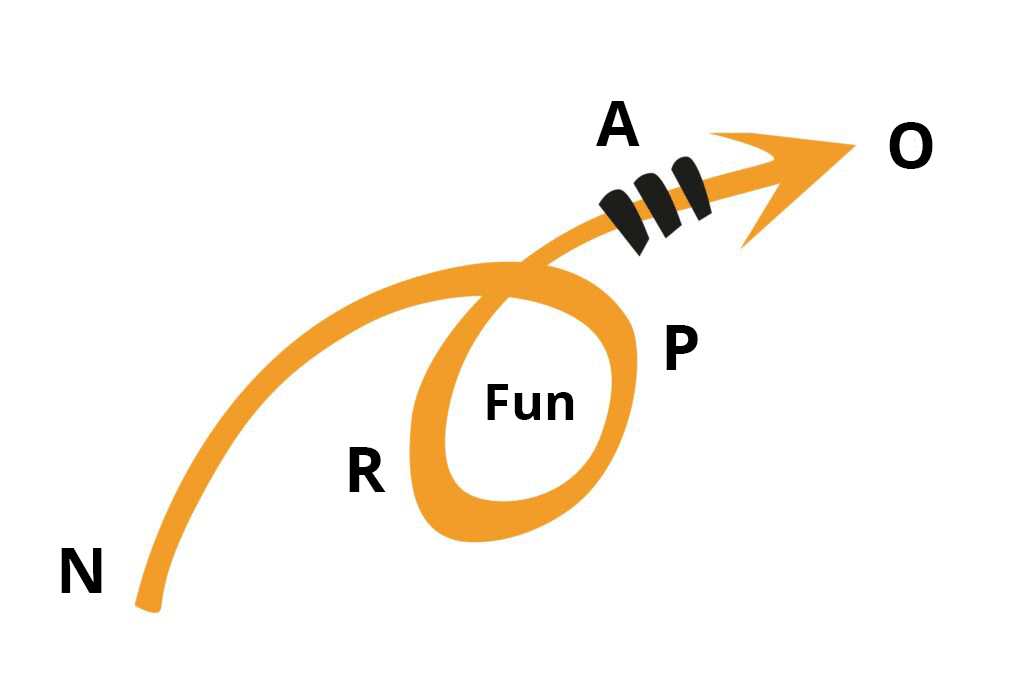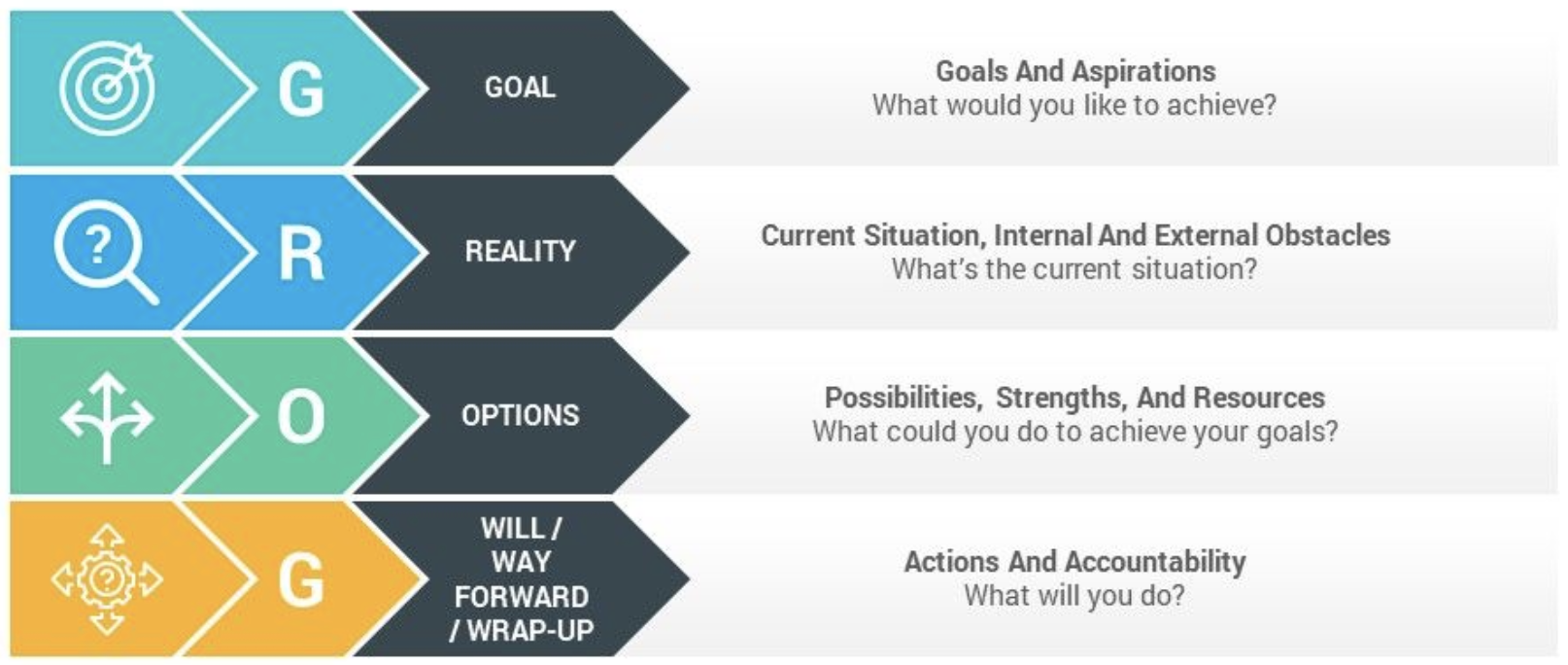
How to Use a Coaching Framework To Pump Up Your Team for Success
Sales coaching is critical to increasing sales performance, just as much as coaching is critical to performance in any other area. If you want a high-performing sports team: Invest in coaching. If you want to be a high-performing athlete: Invest in coaching. If you want your sales team to beat the competition: Invest in coaching.
This quarter at Membrain, our theme internally is “Pumping up for Rocky Times.” Economic uncertainty is the only certainty in the marketplace right now, and many are in for a bumpy ride. That means we have to “pump up” on the critical factors that contribute most to our success, just like Rocky Balboa had to “pump up” for the fight of his life.
Rocky had Mickey Goldmill. And your sales team needs a sales coaching framework.
What is a Coaching Framework?
A coaching framework is a structured set of guiding principles for how coaches engage with coachees to guide them toward higher performance in a consistent, scalable, and effective manner.
There was an interesting conversation on LinkedIn recently in which sales conversations were compared to coaching conversations. Great sales conversations are also coaching conversations. They bring value, help the prospect gain clarity, and help them make good decisions that make sense for them. The best sales conversations also help the prospect execute on their vision and achieve their goals.
Even the best coaching sessions can have zero effect if there’s a lack of accountability
And just like world-class sales teams use a sales framework, often called a methodology, for sales conversations, so also world-class sales teams use a sales coaching framework.
What Are Some Examples of Coaching Frameworks?
An effective sales coaching framework can be built based on more general coaching frameworks.
For instance, Kjell Enhanger developed the NOPRA Fun model, which I described in an article about his Ice Cream Boomerang Concept.

NOPRA Fun stands for Now, Outcome, Problems, Resources, Action, and Follow-Up Now (FUN). It focuses on helping coaches move their coachees through a structured conversation about their current state, their desired end state, problems they’re having, the resources they have available, the actions they need to take, and then the follow-up process that is critical for reinforcement.
Another example of a well-known coaching framework is the GROW coaching model. Also not specific to the sales industry, it provides useful structure for any coaching conversation. This model uses the acronym GROW to represent the stages: Goal (aspiration), Reality (current obstacles or situations), Options (strengths and resources), and Way Forward (accountability and personal actions).

Another example of a coaching framework is the one we recently introduced at Membrain based on our signature methodology called VIBE. VIBE stands for Vision, Impacts and Implications, Barriers, and Execution. We’re using the methodology as a framework for conversations within and without our organization, including sales conversations, and sales coaching conversations. In this way, it’s an example of how a sales methodology can also be applied to coaching methodologies.
What are the Essential Elements of a Good Sales Coaching Framework?
As you can see, the different types of coaching frameworks share some common elements, and they also share common elements with sales methodologies. Some sales methodologies can be customized and used as a coaching framework, and generic coaching frameworks can be customized and used specifically for sales coaching.
Coaching frameworks and sales methodologies share:
- A memorable and useful set of conversational layers
- That help individuals gain clarity on their current and desired future state
- And establish steps to take to get where they want to be
- As well as identify any barriers that might get in their way of closing that gap
They both include a consistent yet flexible pace and cadence for these conversations.
A sales coaching framework should include this cadence for common, important types of sales coaching conversations and different coaching contexts, such as:
- Mindset coaching
- Skills coaching
- Strategic planning
- Goals planning and accountability
- Pipeline and opportunity
- Account planning
- Activity and call planning
- Win/loss coaching
(Here's a list of valuable sales coaching questions to ask in different contexts.)
A great coaching framework provides accountability and support for the individuals on your team and helps them continually improve performance. It does that by guiding your sales coaches to more effectively provide the accountability and support salespeople need, in a systematic yet human format.
At Membrain, we believe in the power of coaching. Our platform already contains a variety of coaching tools that enable sales leaders to more easily see what their salespeople need and have more effective conversations with them. And we’re planning more.
The Critical Importance of Accountability
Even the best coaching sessions can have zero effect if there’s a lack of accountability, which is often the case because sales managers don’t know how to salespeople accountable without becoming a micromanager or dictator.
For this reason, I feel obliged to include this fantastic advice from world-class sales coach Keith Rosen, CEO of Profit Builders: The answer is to help salespeople to hold themselves accountable, by asking two questions:
- “How can I be your accountability partner in a way that will be supportive of you, and not micromanaging or negative?”
- “How do you want me to follow up with you if you don’t honor the commitments you make?”
These brilliant questions allow the salesperson to choose the accountability structure that works best for them. And, having chosen it, they are much more likely to hold themselves accountable to it.
What do you want Membrain to include, to support more effective sales coaching? We would love to hear from you.

By George Brontén
George is the founder & CEO of Membrain, the Sales Enablement CRM that makes it easy to execute your sales strategy. A life-long entrepreneur with 20 years of experience in the software space and a passion for sales and marketing. With the life motto "Don't settle for mainstream", he is always looking for new ways to achieve improved business results using innovative software, skills, and processes. George is also the author of the book Stop Killing Deals and the host of the Stop Killing Deals webinar and podcast series.
Find out more about George Brontén on LinkedIn







